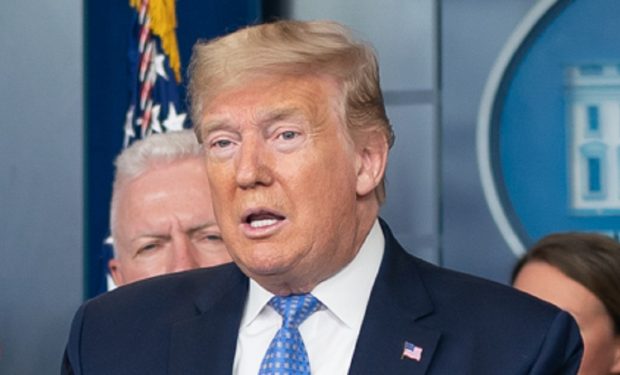The Foreign Intelligence Surveillance Act (FISA) is a hot topic in Congress this week as its reauthorization path has been blocked by former President Donald Trump, who told his MAGA adherents in the House to hobble it.
For the law-and-order party pose of the GOP, this is a counterintuitive change of priority — but Trump effectively couches his objections in “freedom” and in the suspicion he pushes to his followers that the real enemies of America are within, including the DOJ (which is charging him criminally), the FBI, the CIA. and other allegedly malign “deep state” agencies.
U.S. security experts and intelligence officers contend that they rely on FISA to do critical warrantless surveillance that keeps America safe, with intelligence capabilities that detect things like imminent terrorist attacks or Iranian retaliatory strikes.
Trump had personal reasons for not wanting FISA extended, writing: “KILL FISA, IT WAS ILLEGALLY USED AGAINST ME, AND MANY OTHERS. THEY SPIED ON MY CAMPAIGN!!!”
It’s absolutely used that way.
— Angry Staffer
If a US person pops up in a legitimate target’s communications, that’s what’s called being “incidentally collected”
When this information is swept up, US persons are “minimized” (example: they show up as ‘US Person 1’ instead of their name)
If… https://t.co/PiGfSNBMZc(@Angry_Staffer) April 11, 2024
FISA currently captures any American who pops up in connection with a legitimate target — e.g., a Russian oligarch being surveilled — as a nameless contact that is, as AngryStaffer explains below, “incidentally collected.” If the incidentally collected U.S. citizen looks like they should be investigated, the agency that collected the data can ask the U.S. to identify the person and proceed.
If, say, Congresswoman Marjorie Taylor Greene or Senator Chuck Schumer was collected in a connection with a Russian disinformation agent, that could be exposed by FISA.
The FISA rules are being portrayed by Republican objectors as broad-based spying on Americans by their own government. A more realistic scenario is described below, wherein an American trade association representative met with an executive from the Russian energy giant Gazprom in the course of normal business. The American was, as a result, “incidentally collected,” The CIA showed up at his door the next day, was satisfied with his answers, and moved on. “End of story,” writes the commenter.
Happened to my husband. He worked for a trade association in DC. He had a meeting with Gazprom executives once . The next day the CIA showed up at his office..He answered their questions. End of story. Not unusual.
— Sharon is a former Republican (@MsK7781) April 11, 2024
Some commenters point out that the way the rule works, permitting the cursory investigation of people related to foreign adversaries already under surveillance, seems like a helpful and even necessary tool.
“Showing up as a contact during the monitoring of foreign agents/actors seems like an excellent reason for a warrant to be issued for further surveillance of a citizen,” writes one. “Like, one of the best reasons.”
Showing up as a contact during the monitoring of foreign agents/actors seems like an excellent reason for a warrant to be issued for further surveillance of a citizen. Like, one of the best reasons.
— Tim Price (@TimPriceUW) April 11, 2024
Republican lawmakers including Speaker Mike Johnson (R-LA) and (shown below) French Hill (R-AR) were set to get FISA done before Trump’s interference.
